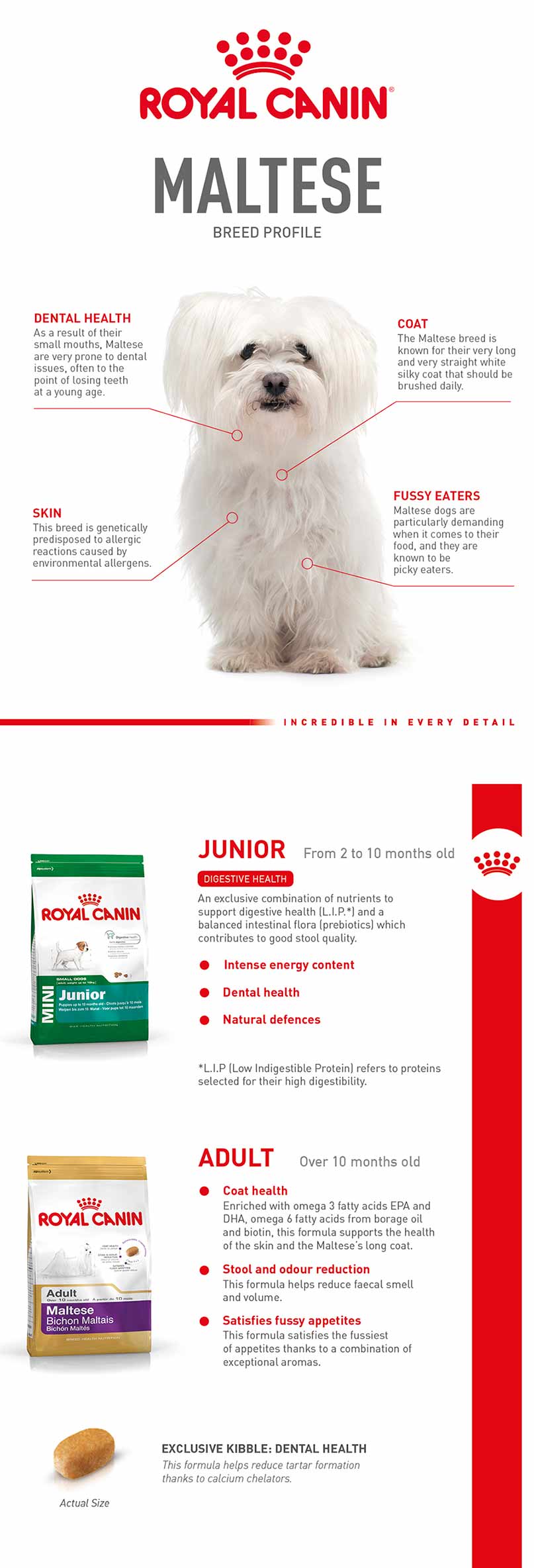As a responsible Maltese owner, it is important to understand what food is best for my furry friend. Did you know that Maltese are prone to food allergies? This makes it crucial to provide them with a diet that is tailored to their specific needs.
When it comes to the diet of Maltese, it is essential to focus on high-quality ingredients that are easily digestible. This breed requires a balanced diet that includes a mix of protein, carbohydrates, and healthy fats. Opting for a grain-free or limited-ingredient food can help minimize the risk of allergies. Additionally, providing fresh fruits and vegetables as treats can be a great way to incorporate additional nutrients into their diet. By prioritizing the nutritional needs of Maltese, we can ensure their overall health and well-being.

What Food Should Maltese Eat?
In this article, we will explore the dietary needs and preferences of Maltese dogs. Whether you are a new Maltese owner or looking to improve your furry friend’s nutrition, understanding what food to feed your Maltese is crucial for their health and well-being. We will provide you with detailed information and tips to ensure that your Maltese receives the appropriate nutrition to live a happy and healthy life.
The Importance of a Balanced Diet
A balanced diet is essential for every dog, including Maltese. It provides the necessary nutrients, energy, and support for optimal growth, development, and overall health. A balanced diet for your Maltese should include a combination of high-quality protein, carbohydrates, healthy fats, vitamins, and minerals. The specific dietary needs of a Maltese may vary depending on factors such as age, activity level, and any underlying health conditions.
Feeding your Maltese a balanced diet offers numerous benefits. It helps maintain a healthy weight, supports a strong immune system, ensures a shiny coat, promotes proper digestion, and reduces the risk of chronic diseases. Providing your Maltese with the right food is a fundamental way to show your love and care for them.
Protein: The Building Block of Nutrition
Protein is an essential component of a Maltese’s diet. It is vital for muscle development, tissue repair, and overall growth. High-quality protein sources include lean meats like chicken, turkey, and fish. It is important to choose lean cuts of meat to avoid excessive fat intake, which can lead to obesity and other health issues.
Maltese dogs can also benefit from plant-based protein sources such as lentils, beans, and chickpeas. These options provide a good balance of nutrients and are often easier to digest for dogs with sensitivities or allergies to animal proteins. When exploring plant-based protein options, it is essential to ensure that they are complete proteins that contain all necessary amino acids.
Carbohydrates: Energy for Your Maltese
Carbohydrates are a primary energy source for dogs, including Maltese. Incorporating healthy carbohydrates into your Maltese’s diet is important, but it is crucial to choose complex carbohydrates rather than simple sugars. Complex carbohydrates, such as sweet potatoes, brown rice, and whole grains, provide sustained energy and are digested more slowly, avoiding sudden spikes in blood sugar levels.
Vegetables are another excellent source of carbohydrates for your Maltese. They offer essential vitamins, minerals, and fiber. Incorporate a variety of vegetables, such as carrots, peas, and leafy greens, into your Maltese’s diet to ensure a range of nutrients and provide additional hydration and digestive support.
Vitamins and Minerals for Optimal Health
Vitamins and minerals play a crucial role in various bodily functions of a Maltese. These micronutrients support overall health, including immune system function, bone health, and cell production. Incorporating foods rich in vitamins and minerals is essential for your Maltese’s well-being.
Healthy Fats for a Shiny Coat and More
Healthy fats are an important part of a Maltese’s diet. They provide energy, support brain health, and contribute to a luxurious and shiny coat. Good sources of healthy fats include fish oil, salmon, flaxseed, and coconut oil. These fats also have anti-inflammatory properties and help maintain your Maltese’s skin health. However, it is important to remember that moderation is key, as excessive fat intake can lead to weight gain.
The Role of Water in a Maltese’s Diet
Water is often an overlooked component of a dog’s diet. It is essential to keep your Maltese hydrated throughout the day. Fresh and clean water should always be available to your dog. Adequate water intake supports proper digestion, nutrient absorption, temperature regulation, and overall health. Monitor your Maltese’s water intake and ensure they have access to water at all times, especially during warm weather or after physical activity.
Dietary Considerations for Maltese
When choosing the right food for your Maltese, there are a few additional factors to consider to meet their specific needs:
Age-Specific Nutrition
Different life stages require different nutritional needs. Puppies need a well-balanced diet that supports their growth and development. Look for high-quality puppy food formulated specifically for small breeds. Adult Maltese, on the other hand, require a maintenance diet that supports their overall health and energy levels. Senior Maltese may benefit from food specifically designed for older dogs that supports joint health and contains age-appropriate nutrients.
Allergies and Sensitivities
Just like humans, dogs can have allergies or sensitivities to certain foods. Common food allergies in dogs include chicken, beef, dairy, and wheat. If you suspect your Maltese has a food allergy or sensitivity, consult with a veterinarian who can guide you on an elimination diet or recommend hypoallergenic dog food options.
Portion Control and Feeding Schedule
Maltese are prone to obesity, so it is important to practice portion control and establish a feeding schedule. Avoid free-feeding, as it can lead to overeating. Divide your Maltese’s daily recommended food portions into two or three smaller meals throughout the day. This not only helps maintain their weight but also supports their digestion and prevents bloating.
Choosing the Right Food for Your Maltese
When selecting food for your Maltese, always opt for high-quality dog food with real meat as the main ingredient. Avoid artificial preservatives, flavors, and fillers. It is also essential to check for AAFCO (Association of American Feed Control Officials) approval, indicating that the food meets the necessary nutritional standards.
If you prefer to prepare home-cooked meals for your Maltese, ensure they receive a balanced diet by consulting with a veterinarian or canine nutritionist. Homemade meals require careful planning and consideration of all essential nutrients.
Conclusion
Feeding your Maltese the right food is crucial for their overall health and well-being. A balanced diet that includes high-quality protein, carbohydrates, healthy fats, vitamins, and minerals ensures optimal growth and development. Remember to choose age-appropriate nutrition, consider any allergies or sensitivities, practice portion control, and provide a feeding schedule. By meeting your Maltese’s dietary needs, you are setting them up for a healthy and happy life with you.
Key Takeaways: What Food Should Maltese Eat?
- Maltese dogs require a balanced diet that is suitable for their small size.
- High-quality commercial dog food specifically designed for small breeds is a good option.
- Fresh and lean meats, such as chicken or turkey, can be included in their diet.
- Fruits and vegetables, like carrots and blueberries, can provide important nutrients.
- Avoid feeding them foods that are toxic to dogs, such as chocolate or onions.
Frequently Asked Questions
Are you wondering what food would be best for your Maltese? Look no further! We have compiled some common questions about the ideal diet for Maltese dogs and provided detailed answers to help you make the right choice.
1. How do I choose the right food for my Maltese?
When selecting food for your Maltese, it’s important to consider their age, size, and any specific dietary needs. Look for a high-quality dog food that lists real meat as the main ingredient. Avoid foods with fillers, artificial additives, and by-products. If you’re unsure, consult with your veterinarian for personalized advice.
Additionally, consider the feeding method. Some Maltese dogs do well with dry kibble, while others prefer wet or raw food. It’s best to introduce new foods gradually, mixing them with their current diet to avoid gastrointestinal disturbances.
2. Can Maltese dogs eat human food?
While it may be tempting to share your meal with your furry friend, not all human foods are safe for Maltese dogs. Some common human foods, like chocolate, onions, garlic, and grapes, can be toxic to dogs. It’s best to stick to a balanced dog food diet and only offer dog-friendly treats and snacks.
If you want to incorporate some fresh food into your Maltese’s diet, consult with your vet to ensure it’s safe. Certain fruits and vegetables, such as carrots, apples, and green beans, can be given as healthy, low-calorie treats in moderation.
3. Should I feed my Maltese puppy food or adult food?
Maltese puppies have different nutritional needs compared to adult dogs. While they are growing, they require more protein, fat, and nutrients to support development. Look for a high-quality puppy food specifically formulated for small breeds like Maltese. These foods contain the right balance of nutrients for your growing pup.
Once your Maltese reaches adulthood, around one year old, you can transition them to an adult dog food that meets their specific needs. Your veterinarian can guide you on when to make this transition and help you choose the right food for your Maltese’s age and activity level.
4. How often should I feed my Maltese?
The frequency of feeding your Maltese largely depends on their age. Puppies require three to four small meals a day to meet their high energy needs. As they grow older, you can gradually reduce the number of meals to two or three a day.
Adult Maltese dogs typically do well with two meals a day. However, some dogs may prefer to graze throughout the day. It’s important to monitor their weight and adjust the portion sizes accordingly to prevent obesity.
5. Can I switch my Maltese’s food brand or flavor?
If you wish to switch your Maltese’s food brand or flavor, it’s recommended to do so gradually to avoid stomach upset. Start by mixing a small amount of the new food with the old food and gradually increase the proportion of the new food over several days. This slow transition gives your Maltese’s digestive system time to adjust.
If you notice any digestive issues or allergic reactions during the transition, consult your veterinarian for guidance. They can recommend alternative brands or flavors that may better suit your Maltese’s needs.

